John Wallis
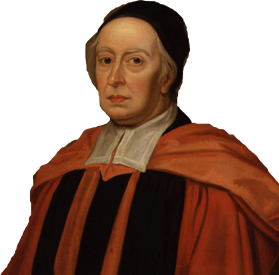 Digital Calendar and Scholarly Edition
Digital Calendar and Scholarly Edition
People involved: Philip Beeley, Kim McLean-Fiander, Christoph J. Scriba
John Wallis (1616–1703), Savilian professor of geometry in Oxford from 1649 until his death 54 years later, is today renowned as one of the leading mathematicians of the seventeenth century. Yet in a manner characteristic of the time, his interest and accomplishments spread far wider.
He acted as secretary to the reforming Assembly of Divines in the 1640s; acquired fame as a cryptanalyst during the civil wars; was a founding member of the natural philosophical circle in Oxford during the Commonwealth and the Royal Society at the Restoration; and controversially held the post of keeper of the university archives jointly with his mathematical chair. Alongside important mathematical works, his publications include major treatises on ancient and modern music theory, a pioneering grammar of the English language, and the foremost survey of logic produced in Britain during his lifetime.
Philip in discussion with Robert Hatch.
A field trip to the Kneller portrait.
‘His roughly 2,000 extant letters, exchanged with astronomers, mathematicians, philosophers, and linguists throughout Europe, document his role not only as a key figure in the international Republic of Letters itself, but also in establishing Oxford as an important hub within that broader network …’
His correspondence was equally wide-ranging geographically and thematically: he engaged in public dispute with a range of figures including Hobbes, Holder, Fermat, and Roberval, and corresponded with leading scientific luminaries such as Boyle, Newton, Leibniz, Huygens, and Flamsteed, as well as scientific amateurs, theologians, and members of government. His roughly 2,000 extant letters, exchanged with astronomers, mathematicians, philosophers, and linguists throughout Europe, document his role not only as a key figure in the international Republic of Letters itself, but also in establishing Oxford as an important hub within that broader network after a period in which it had been marginal to European intellectual affairs. He thus represents a contrasting institutional setting which gave rise to cultures of knowledge instructively different to those fostered by the networks of Aubrey, Hartlib, or Comenius. Wallis’s correspondence also provides a crucial link between the earliest English correspondence network surrounding the Prussian-born Hartlib and the domestication of this kind of networking activity by the era of Aubrey.
John Wallis to Jan Hevelius, Oxford, 26 October 1668 (old style), in which Wallis thanks Hevelius for his copy of his recently-published Cometographia (1668), sent to him via Henry Oldenburg. (Image courtesy of Waller Collection, Uppsala Universitet, shelfmark Waller Ms gb-01783.) Click to enlarge.
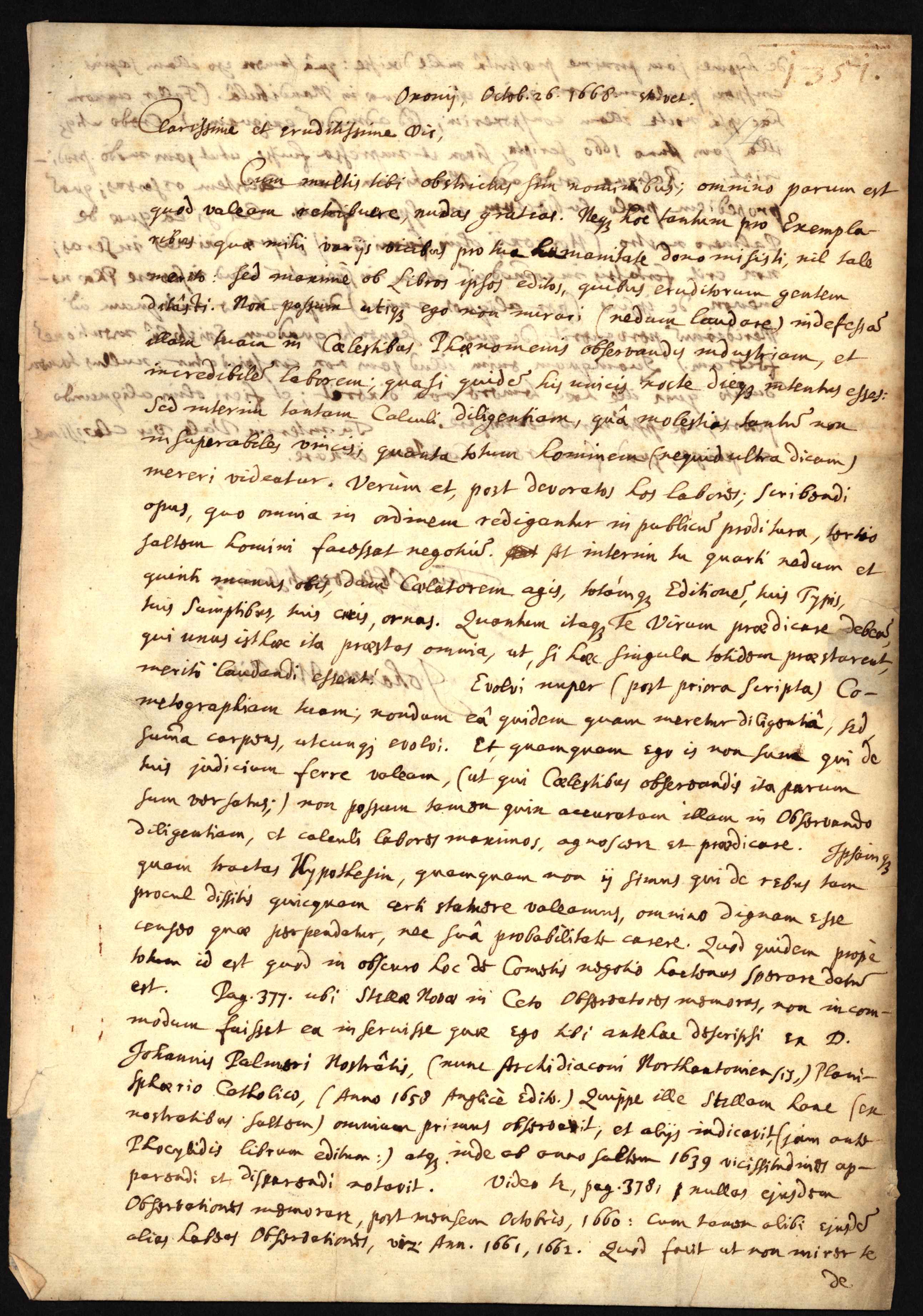 |
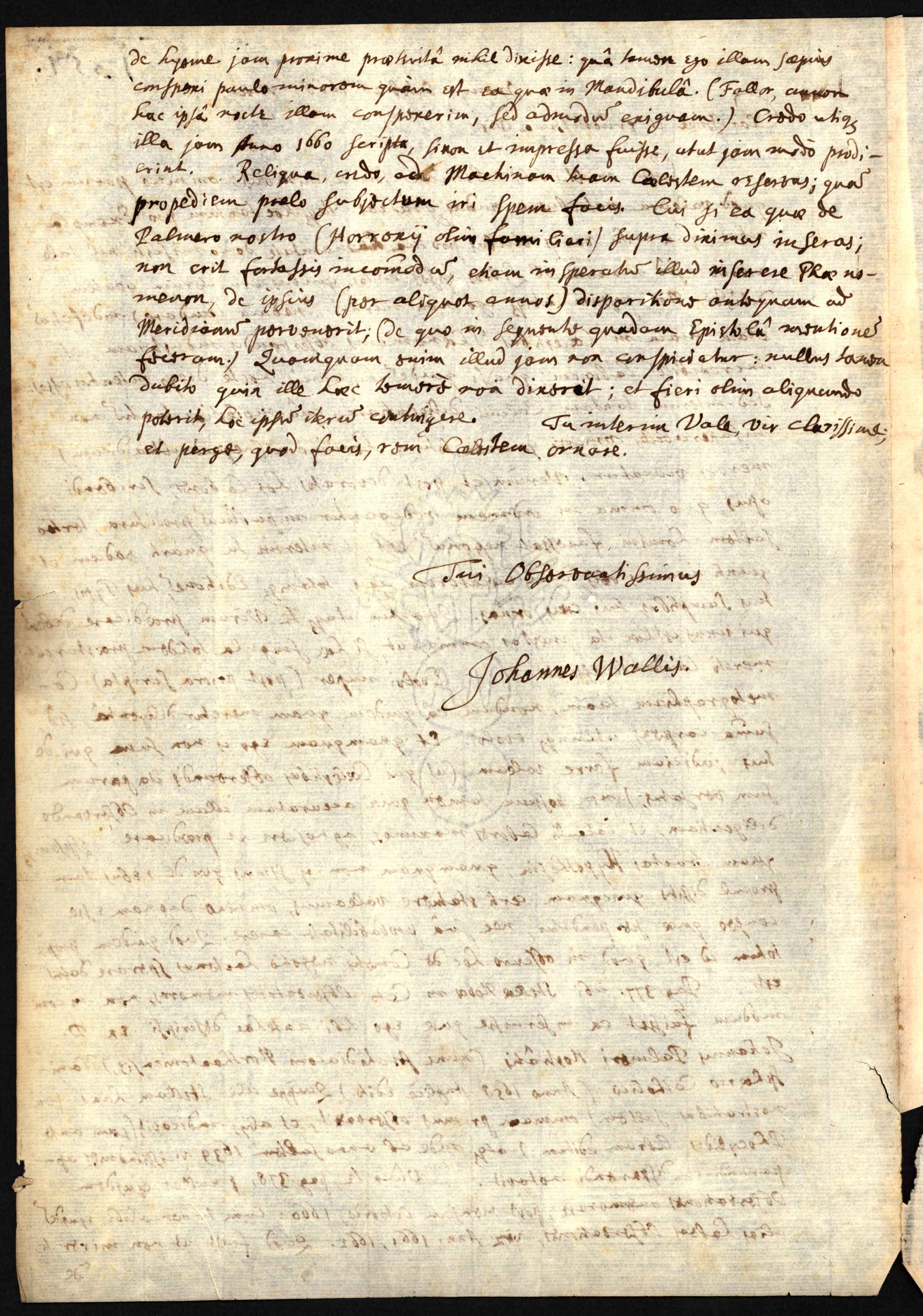 |
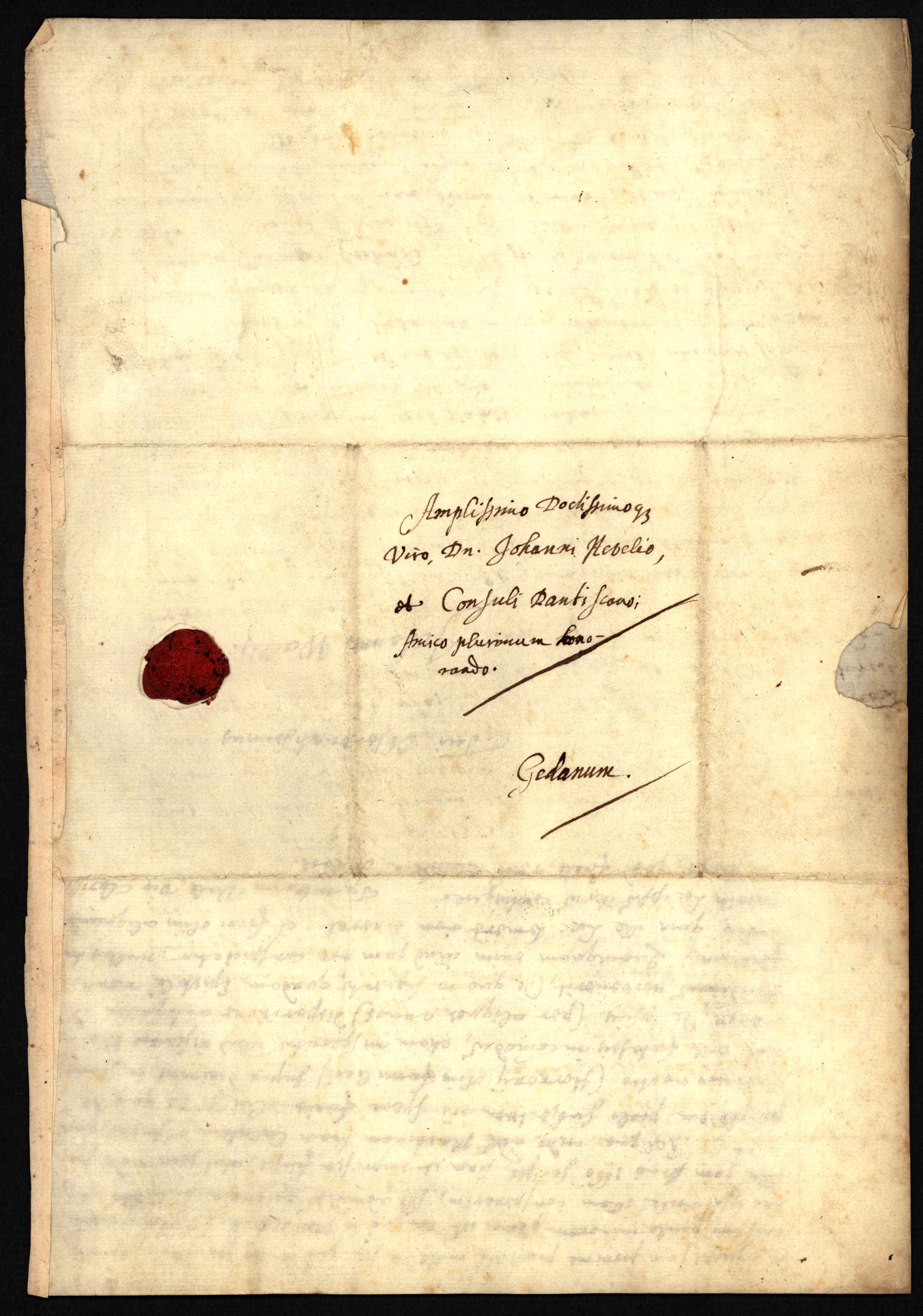 |
Rationale for Inclusion
Wallis regarded scientific correspondence as an important record of intellectual developments, and therefore published some of his own letters during his lifetime. More recently, a number have been published in modern editions of the letters of his most important scientific contemporaries. Yet the overwhelming majority of his letters remain in manuscript and are virtually unstudied. The Bodleian Library contains the largest manuscript holdings of Wallis’s communications as well a huge range of related material, including his lecture notes from the 1650s; drafts of numerous publications; originals and copies of many of the papers which he deciphered from the 1640s onwards; and notes on books by other authors, as well as his marginalia in books which were or became part of the Savilian Library itself. Hundreds of additional letters, the existence of which has hitherto gone unnoticed, have recently been discovered in the University Archives, throwing fresh light on academic life and university politics throughout his Oxford career. In response to this situation, Philip Beeley and Christoph Scriba have already started work on a scholarly edition of Wallis’s correspondence, two volumes of which appeared with OUP in 2003 and 2005. This work will be continued and consolidated under the Cultures of Knowledge umbrella.
Outputs & Presentations
Primary Outputs
- Volume III and Volume IV, The Correspondence of John Wallis (1616-1703), eds. Philip Beeley and Christoph J. Scriba. 8 vols (Oxford, 2012 and 2013).
- Digital catalogue of the correspondence of John Wallis within Early Modern Letters Online.
Recent Secondary Outputs
- Philip Beeley, ‘Nova Methodus Investigandi: On the Concept of Analysis in John Wallis’s Mathematical Writings’, in H. Breger, ed., Studia Leibnitiana (Special Issue): Analysis als mathematische Methode (Stuttgart, forthcoming 2012).
- Philip Beeley, ‘The Progress of Mathematick Learning: John Wallis as Historian of Mathematics’, in B. Wardhaugh, ed., The History of the History of Mathematics (Frankfurt am Main & New York, forthcoming 2012), pp. 9-30.
- Philip Beeley, ‘Leibniz and Hobbes’, in B. Look, ed., The Continuum Companion to Leibniz (London and New York, 2011), pp. 32-50
Recent Presentations
- Philip Beeley, ‘Experimentarian Philosophers: Hobbes’s Writings on Pneumatics and their Reception by Boyle and Wallis’. The Natural Philosophy of Thomas Hobbes: Its Context and Development (Conference, CNRS/Maison Française d’Oxford, University of Oxford, February 2012).
- Philip Beeley, ‘Conflict and Collaboration: John Wallis’s Intellectual Relations with French Thinkers’. Across the Channel: Intellectual Relations between England and France in the Early Modern Period (Conference, CNRS/Maison Française d’Oxford, University of Oxford, November 2011).
- Philip Beeley, ‘Johannes Hevelius, Hartlib and Wallis: Early Modern Ideals of Scientific Collaboration’. Johannes Hevelius: The Burgher of Gdańsk and his Work (Conference, Old Town Hall, Gdańsk , November 2011).
- Kim McLean-Fiander, ‘Johannes Hevelius, John Wallis, and Early Modern Letters Online’. Johannes Hevelius: The Burgher of Gdańsk and his Work (Conference, Old Town Hall, Gdańsk , November 2011).
- Philip Beeley, ‘A World Apart: On the Scientific Correspondence between the Academia naturae curiosorum and the Royal Society’. Intellectual Geography: Comparative Studies, 1550-1700 (Conference, St Anne’s College, University of Oxford, September 2011).
- Philip Beeley, ‘Oxford Science and the Republic of Letters: John Wallis and his Correspondence Networks’. Cultures of Knowledge in Early Modern Europe (Seminar, University of Oxford, June 2011).
Audio clip: Adobe Flash Player (version 9 or above) is required to play this audio clip. Download the latest version here. You also need to have JavaScript enabled in your browser.
- Philip Beeley, ‘Nova Methodus Investigandi: On the Concept of Analysis in John Wallis’s Mathematical Writings’. Analysis als mathematische Methode: Leibniz und Vorläufer (Workshop, Universität Hannover, May 2011).
- Philip Beeley, ‘The Progress of Mathematick Learning: John Wallis as Historian of Mathematics’. History of Mathematics (Workshop, All Souls College, Oxford, December 2010).
- Philip Beeley, ‘Science et métaphysique chez Leibniz’ . Hommage Michel Fichant (Conference, Université Paris I Panthéon-Sorbonne, November 2010).

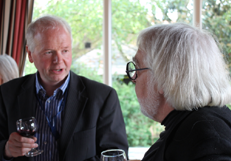
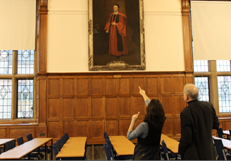

 Join
Join 